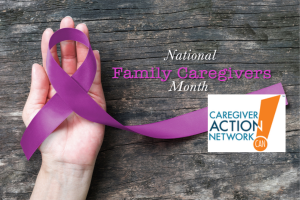Being a first time caregiver for a person with ALS can be overwhelming. Here are four quick tips to help you manage.
So. You’re a first time ALS caregiver now. Maybe you’ve done this before — but chances are you haven’t. Most ALS caregivers have a close relationship with their patient before the diagnosis (they might be your spouse, partner, parent, close friend). You may be thinking, “I love my [spouse/friend/parent/etc], but I don’t know what I’m doing!!”
Trust us, that’s really really common. And it’s nothing a little time and experience won’t fix. To help make sure those first days of caregiving a little easier, we’ve compiled a list of just a few pro tips.
1. Plan Ahead And Talk It Out

Photo by Kelly Sikkema on Unsplash)
At its core, a Caregiver/Patient relationship is a partnership. And when verbal and physical communication falter, the caregiver can’t always rely on their gut instinct or best judgement to make decisions for the patient. That’s why preparatory communication is so vital.
So what are the right questions to ask? Discussion topics will, of course, vary from team to team, but some questions you might ask are:
Who are you comfortable receiving help from for personal care and hygiene?
Will you at any point want to sell your home? Will you want to move into a care facility?
Who do you want to handle your finances? (Make sure Power of Attorney is granted to someone trusted and close.)
If there are any pets, who will be responsible for them?
Ask the uncomfortable questions, the practical questions, the smart questions. Write down the answers. Adhere to your patient’s wishes as best you can.
These conversations sure as all heck won’t be easy, especially while you’re still trying to sort out the reality of fighting ALS, but they will make things immensely easier down the line.
2. Remember Yourself

(Photo by Ben White on Unsplash)
Being a caregiver for someone does not mean you stop taking care of yourself. Caregiving is a 24/7 job, and it requires a lot of physical and emotional strength, so it’s important you make time to re-charge.
Schedule a daily workout (walks and stretching count!), keep a journal, meet with a therapist, run a bubble bath and pop a bottle of wine…and never be afraid to ask for help. There is nothing wrong with asking a trusted family member or friend to step in for a weekend so you can get some R&R.
You are entitled to your feelings and frustrations, and you are entitled to “me time.”
3. “Show Up” As a Team

(Photo by Jasmin Schreiber on Unsplash)
It will always be easier to stay home, stay in bed, and passively let the dreaded “mental funk” set in. But as blogger and ALS patient Dagmar Munn writes in her article, How I Use ‘Showing Up’ to Help Me Live with ALS, there is power in the simple act of facing the day.
By ensuring you and your patient are both out of bed, fully dressed (no pajamas!), and ready to engage with the day, you’ll be more able to tell the “mental funk” to take a hike. Some easy ways to “show up” include: going for a short walk, meeting friends for lunch, attending chapter meetings, and reading the news aloud to your patient.
4. Join An ALS Chapter
The ALS community is vast and wide, and the ALS Association is an incredible resource with chapters across the country that work towards the organization’s mission and goals at a community level. Chapters offer information on treatment centers in your area, volunteer opportunities, and local events. Getting involved is as easy as finding a chapter near you.
About SimpliHere
The mission of SimpliHere is to ensure efficient care and peace of mind for caregivers and their patients with neurological conditions that impact communication and mobility. Joanna Rosenberg founded SimpliHere to address communication gaps between caregivers and patients. Her personal experience when her mother lived with ALS exposed the challenges of communicating and understanding basic needs, as well as managing daily tasks. Download SimpliHere today!








